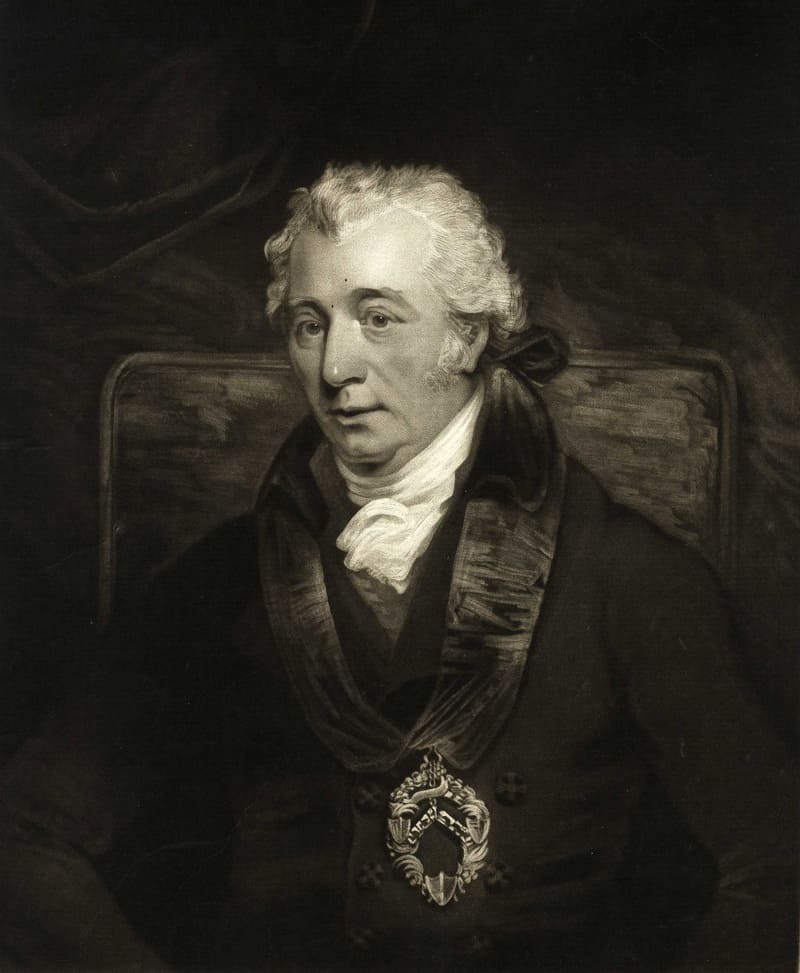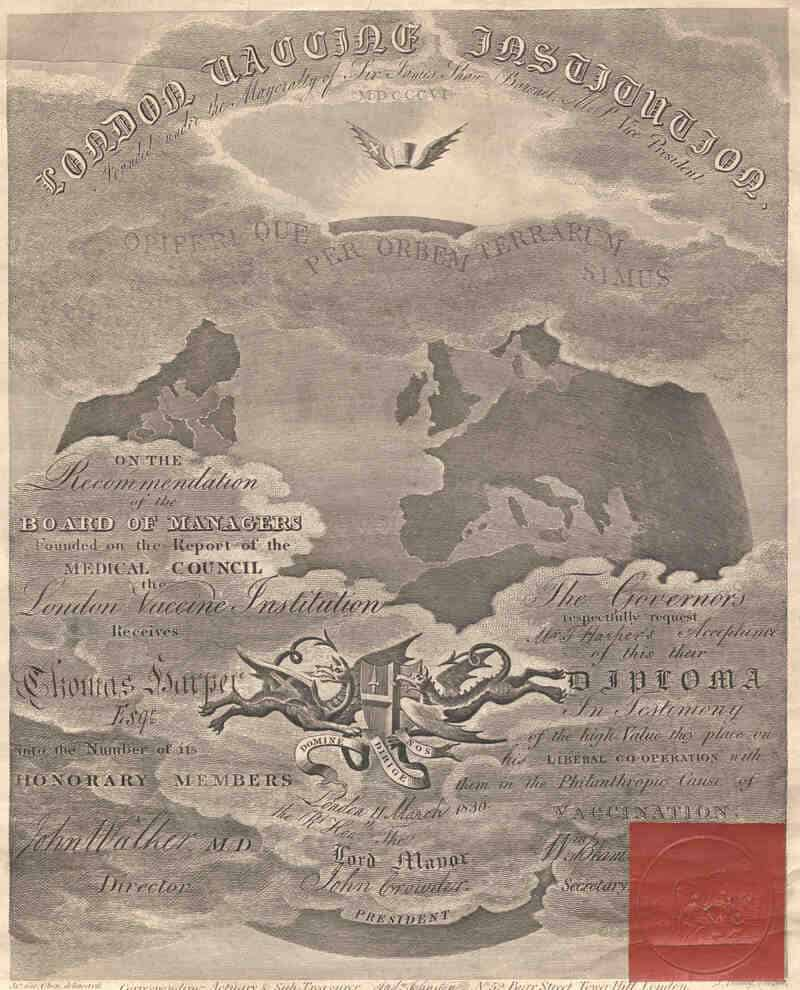Doctor Edward Jenner (1749-1823), vaccine pioneer, engraved by J.R. Smith, 1820
By Susan Snell, Archivist and Records Manager, Museum of Freemasonry
Over the last two years, we have all heard a lot about vaccination because of the Covid pandemic. Vaccination, a technique developed in the eighteenth century, helped medical science to make jabs against the virus quickly in 2020. This was not an option available for thousands of individuals infected with the Spanish Flu just after World War I.
Since the early 1700s, doctors have tried to find solutions to eradicate harmful viruses such as smallpox. Contagions caused foetal deformities, blindness in children and disfiguring scars known as pock marks. A Freemason, William Perfect, Provincial Grand Master of Kent from 1794 until 1809 and a member of London’s Old Union Lodge, popularised a variolation method which helped to stop the spread of this harmful disease. Perfect, delighted with the results, even wrote a poem: The Inoculator Triumphant, in praise of his achievements.
Another Freemason, Edward Jenner, developed an inoculation technique in 1798, which made it easier to vaccinate people against smallpox. The Royal Jennerian Society, founded in 1803, vaccinated many thousands of individuals in London and beyond at no cost to the recipients. The Society’s resident inoculator was the unconventional Dr John Walker, who did not always follow Jenner’s strict guidelines.

Doctor William Perfect (1731-1809) Provincial Grand Master of Kent engraved by William Say c.1803
Jenner insisted on Walker’s resignation in 1806, but the inoculator set up a rival organisation, the London Vaccine Institution, which ultimately merged with the Royal Jennerian Society in 1813. Walker was a successful fundraiser, helping the London Vaccine Institution to distribute free supplies of the smallpox vaccine throughout England and Wales, Europe, the Colonies and America. He claimed to have personally vaccinated over 100,000 individuals.
Numerous supporters funded the institution, which distributed the vaccine to doctors worldwide with detailed instructions about the inoculation technique. In return, donors received a fancy diploma as an honorary member, including, in March 1830, the London-based silversmith, maker of masonic jewels and Deputy Grand Master of the Antients Grand Lodge, Thomas Harper.

Thomas Harper’s London Vaccine Institution Diploma, 1830
Later vaccination programmes have connections with Freemasonry across the globe. Medical Director of the National Foundation for Infantile Paralysis in America, Dr Hart Edgar Van Riper, served as worshipful master of Madison Lodge of Perfection, Wisconsin. Van Riper supported research by the virologist Jonas Salk, who developed the vaccine against Polio in 1954. Like the earlier programmes against smallpox, Salk’s work helped to eradicate this devastating and life-changing illness.
The Museum of Freemasonry found remarkably few references in its resources to the Spanish Flu outbreak in 1918. The contagion claimed the lives of at least 50 million people worldwide, with high mortality rates in the 20-40 year age group. In an attempt to keep a record of Freemasonry’s support for those affected by Covid in the last few years, we have harvested emails, newsletters, websites and other digital media from many provinces.
We are also collecting physical items. It’s not too late to send us scrubs, facemasks, empty containers, badges, patches and other items with square and compass logos or names of Provinces or Districts to add to our collections. These will all help to tell the story of Freemasonry and Covid in years to come.

This article is part of the Arena Magazine, Issue 50 December 2022 edition.
Arena Magazine is the official magazine of the London Freemasons - Metropolitan Grand Lodge and Metropolitan Grand Chapter of London.
Read more articles in the Arena Issue 50 here.